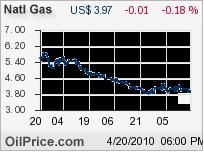ABOUT US
Energy Deregulation
Legislatures and the public utility commissions (PUC) of many states have opened competition for electricity and natural gas supply. In the past, one utility provided all parts of your energy service: generation, transmission, and distribution.
With competition, generation is separated from transmission and distribution. This allows consumers to choose their energy supplier, while the delivery of the energy is still regulated and is the responsibility of the local utility company.
Unregulated
Generation:
With deregulation, you’re able to go direct and choose the company that produces energy, or the company who buys it on your behalf to sell to you.Generation:
Regulated
Transmission and Distribution: This is the actual delivery of electricity across poles and wires and natural gas through pipelines to your business by your local utility company. Your utility company is responsible for maintaining the poles and wires, or pipelines, and responding to emergencies and power outages. The public utility regulates transmission and distribution to ensure the safety and reliability of your services.
The Benefits of Energy Deregulation
As a business operating in a deregulated energy market, you enjoy the following benefits:
- Multiple options for selecting an electricity and natural gas provider
- Flexibility in developing an energy strategy that’s right for your business
- Freedom to choose from a variety of products, prices and terms
- Protection from rising costs
- Budget certainty
- Rebates and incentives.
- Security-transmission and distribution are regulated by the PUC and guaranteed

Our Process
Once you decide you would like us to handle your energy needs, we will require: signed Client Agreement. Fax the signed agreement back to us @ 516 908 3643 or scan and email to: info@newbreedenergy.com We will start your Energy Procurement Process and you will be contacted by one of our energy consultants who will be your dedicated account manager ongoing.
We will perform the following:
- Analyze the last 14 months of usage. Your staff probably doesn’t have the time or expertise to analyze this information.
- Correct any incorrect charges and have them credited back to you. (Our fee is 50% of whatever we recover. We execute a separate agreement for this service.)
- Formalize a Procurement Strategy and prepare a formal Request for Quotation, including all pertinent information.
- Send RFQ to the top Energy Companies in your market. (Approved Suppliers must meet our strict guidelines)
- Analyze and evaluate the bids and present an Executive Summary.
- Negotiate a contract, with the winning bidder with the best terms and conditions available in the marketplace on your behalf and present Client with Executable contract.
- Ensure contract is properly executed and implemented by Supplier.
Ongoing your dedicated account manager will be responsible for all issues... billing, address changes, location drops/adds etc.
Our Fee
Our fees are paid by the Supplier. We are paid the same fee by each supplier. Consequently, we are neutral in choosing a supplier.
Which Suppliers Do We Use?
- We take pride in establishing relationships with only approved Suppliers who are required to sign a Statement of Honesty and Integrity. We do business with national providers as well as smaller private regional providers. Each Supplier must pass a rigorous review process to become Certified. Supplier must also make a statement of stability in a particular marketplace, or a clear exit strategy, which has the best interest of the client in mind. Supplier also must maintain good standing in their marketplace.
- Each Supplier has different niche markets. We match the Supplier to the Client's specific needs.
- We know who's who in the marketplace and which suppliers are doing a good job for their clients.
Our clients include businesses, organizations, condo associations and other entities throughout the United States, from individual retail outlets to entire municipalities. They have one thing in common: they want to save money and they took the one simple step of calling New Breed Energy.
Factors affecting the price volatility of electricity and
natural gas






- Hurricanes
- Heat rates
- Coal Supplies
- Nuclear Regulatory Commission
- Pipeline status
- Offshore Platform conditions
- Protection capacity forecasts
- World Politics - Middle East
- Regional weather
- Wall Street Trading activity and hedge funds
- Long or short positions by trading houses –Speculative Traders and Institutions.
CALL AN ENERGY CONSULTANT TODAY - 888 650 5353

